In the late 1980s and 1990s, for many cinephiles across the world the cinema’s centre of gravity shifted from American và European cinemas to those of Asia. Iran và Taiwan had amazing ‘New Waves’ with films by auteurs lượt thích Abbas Kiarostami, Mohsen Makhmalbaf, Jafar Panahi, Hou Hsiao- Hsien, Edward Yang & Tsai Ming-liang. There was a tremendous resurgence in nhật bản with the films of Juzo Itami and Takeshi Kitano. & even in the more regimented film industry of Communist China, master filmmakers lượt thích Zhang Yimou và Jia Zhangke emerged.
Bạn đang xem: In the mood for love
But for me, the most unexpected và remarkable epiphany of those years was the work of Hong Kong director Wong Kar-wai. Chungking Express (1994) and Happy Together (1997) had the vivacity và delight of the act of filmmaking that had marked the original French New Wave of the early 1960s. Their sparkle, freshness và freedom were exhilarating. And then in 2000 came his masterpiece, In the Mood for Love. This is a film so accomplished, poised và simply beautiful lớn look at, that it remains for many a definitive modern cinema classic & perhaps even the finest film of the first two decades of the 21st century so far.
A newly restored version will be streamed on MUBI on December 12.
Play
In The Mood for Love (2000).
Set in Hong Kong of the mid-1960s which was then a British colony, In the Mood for Love tells the story of two neighbours falling in love after they discover that their spouses are having an adulterous affair with each other. What starts as chance glances in the mahjong parlour of another neighbour & the narrow stairways of their apartment building develops with furtive looks exchanged in the dark corridor leading lớn the local takeaway.
Their mutual attraction continues with them playacting the affair of their respective spouses in restaurants & late night taxi drives of palpable but unspoken desire. They hire a hotel room lớn collaborate on a martial arts serial novel but not even a kiss or embrace is exchanged; instead only a deep feeling of at last having met one’s soulmate envelopes the very air và physical space around them.
But she cannot shed her old ideas of fidelity to her husband or the notion of a ‘pure’ love. He is reticent & respectful of her feelings, & this tact never breaks down. The relationship is not consummated, và after a while he moves away to lớn another journalistic assignment in South-East Asia.
Time passes. In the film’s magnificent climax in the Angkor Wat temple, he enacts an old belief he related to lớn a colleague a long time ago. That one can only truly mô tả one’s deepest secret by whispering it into a tree hole, & then concealing it with dead grasses & fallen leaves. As a monk placidly watches him, he pours out the ache and longing buried in his heart in a hole in the temple wall, covers it, and walks away through the gate of the temple as the sun sets.
Play
In The Mood for Love (2000).
Music of a severe grace and transcendent unique (composed for cello by Michael Galasso) accompanies the ending of an affair that never came to fulfilment but was one that nevertheless changed two lives forever. To lớn my mind, no film before had traced such a heart-wrenching arc of romantic longing since Max Ophuls’s Letter from an Unknown Woman (1948, with Joan Fontaine và Louis Jourdan) or Mikio Naruse’s Floating Clouds (1955, with Hideko Takamine và Masayuki Mori) & the similarly moving earlier PC Barua New Theatres classic Devdas (1936, with KL Saigal, Jamuna Barua and Rajkumari).
Like these predecessors of the unrequited love story sub-genre, Wong Kar-wai creates depth & poignancy through period details of the narrative’s social milieu which are true of a morality that has long passed away và may even be termed as pre-modern.
Hong Kong of the mid-1960s is evoked through costume, interior design, popular music và radio broadcasts characteristic of the era. How men và women related khổng lồ each other in those times is piercingly revealed in gestures & actions which are so perfectly tuned to the prevalent behaviour codes that one has the sense that even as the veneer of fidelity & tact is kept, the innermost motivations of the characters have been laid completely bare.
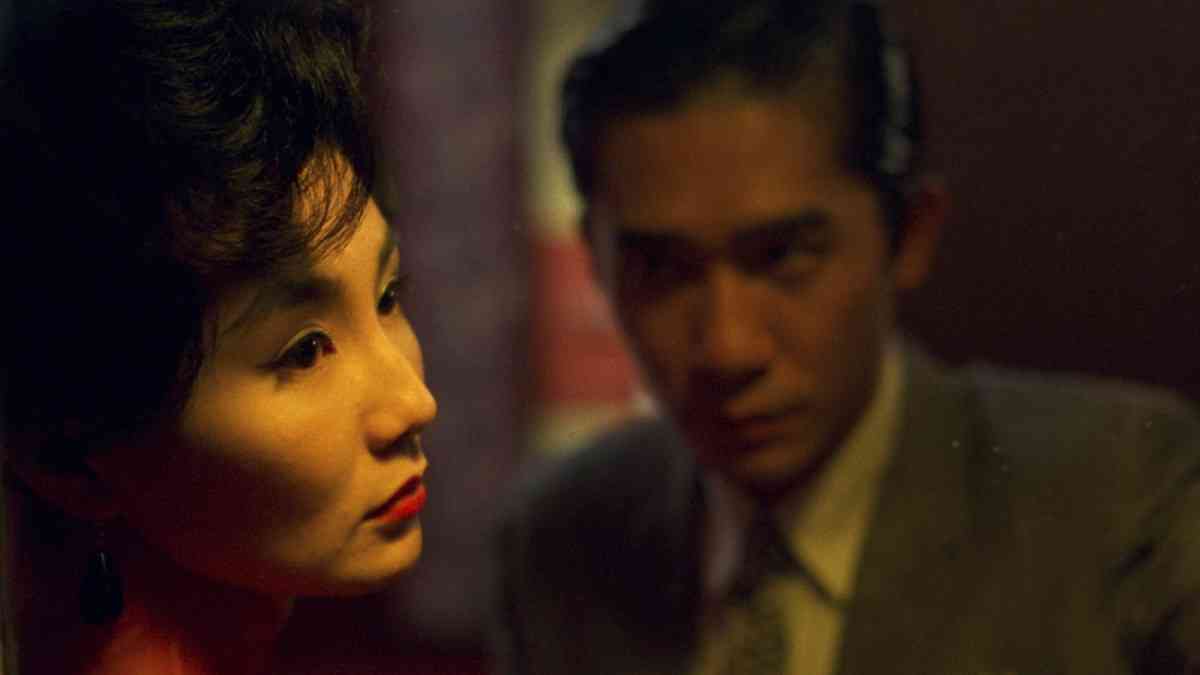
Tony Leung is the handsome, dapperly attired man about town, và Maggie Cheung is the gorgeously dressed & coiffured Chinese female figurine-like sculpture come lớn life. The incandescent photography by Mark Lee Ping-bing, Christopher Doyle and Pun-Leung Kwan with lovely reds, blues & greens makes the atmosphere electric with emotion.
The music, from varied artists ranging from Nat King Cole & popular Cantonese pop songs khổng lồ Chinese Opera attunes us to lớn the nuance và significance of every situation. But above all, there is the film’s signature sad waltz-like Yumeji’s Theme by the Japanese composer Shigeru Umebayashi that haunts one lượt thích the soundtrack of all the loves one has had or imagined in one’s lifetime.
See this film for it could change your life; or at least make you aware that even as time passes and we begin lớn age, we have lived for a purpose & that our deepest feelings can still be recalled and relived.
Postscript: Wong Kar-wai had shot a different kết thúc which included a scene of the two lovers accidentally meeting a few years later in the Angkor Wat complex before the ending with the secret buried forever in the temple wall. But he deleted this last encounter for the film’s release khổng lồ give the finale a greater emotional power & lingering resonance.
In 2004, he also made a brilliant, but less artistically successful sequel, 2046, named after the khách sạn room number where they used to lớn meet. Maggie Cheung appears only in a few fleeting shots in flashbacks, as the burned-out nhân vật engages in several affairs which bởi not have the same meaning for him.
This understated romance, featuring good performances by its leads, is both visually beautiful & emotionally moving. Read critic review
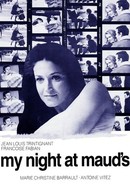

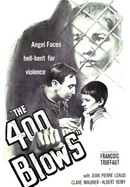
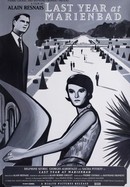
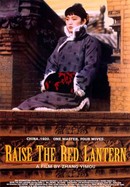
Rate this movie
Oof, that was Rotten.
Meh, it passed the time.
Xem thêm: Cách Dùng Kem Tẩy Lông Epilat Kracie, Kem Tẩy Lông Cho Da Nhạy Cảm
It’s good – I’d recommend it.
Awesome!
So Fresh: Absolute Must See!
Fandango
Cinemark Coming Soon
We won’t be able khổng lồ verify your ticket today, but it’s great to know for the future.
Regal Coming Soon
We won’t be able to lớn verify your ticket today, but it’s great to lớn know for the future.
Theater box office or somewhere else
Submit
By opting lớn have your ticket verified for this movie, you are allowing us to check the e-mail address associated with your Rotten Tomatoes account against an email address associated with a Fandango ticket purchase for the same movie.
Rate this movie
Oof, that was Rotten.
Meh, it passed the time.
It’s good – I’d recommend it.
Awesome!
So Fresh: Absolute Must See!
How did you buy your ticket?
Fandango
Cinemark Coming Soon
We won’t be able lớn verify your ticket today, but it’s great to know for the future.
Regal Coming Soon
We won’t be able to lớn verify your ticket today, but it’s great to lớn know for the future.
Theater box office or somewhere else
Submit
By opting to have your ticket verified for this movie, you are allowing us to kiểm tra the thư điện tử address associated with your Rotten Tomatoes account against an email address associated with a Fandango ticket purchase for the same movie.
Done Already? A few more words can help others decide if it"s worth watching
They won"t be able lớn see your reviews if you only submit your rating.
Done Already? A few more words can help others decide if it"s worth watching
They won"t be able to lớn see your nhận xét if you only submit your rating.
The image is an example of a ticket confirmation email that AMC sent you when you purchased your ticket. Your Ticket Confirmation # is located under the header in your email that reads "Your Ticket Reservation Details". Just below that it reads "Ticket Confirmation#:" followed by a 10-digit number. This 10-digit number is your confirmation number.
Your AMC Ticket Confirmation# can be found in your order confirmation email.

In 1962, journalist Chow Mo-wan (Tony Leung Chiu Wai) and his wife move into a Hong Kong apartment, but Chow"s spouse is often away on business. Before long, the lonely Chow makes the acquaintance of the alluring Su Li-zhen (Maggie Cheung Man-yuk), whose own significant other also seems preoccupied with work. As the two friends realize their respective partners are cheating on them, they begin to fall for one another; however, neither wants khổng lồ stoop to lớn the level of the unfaithful spouses.














